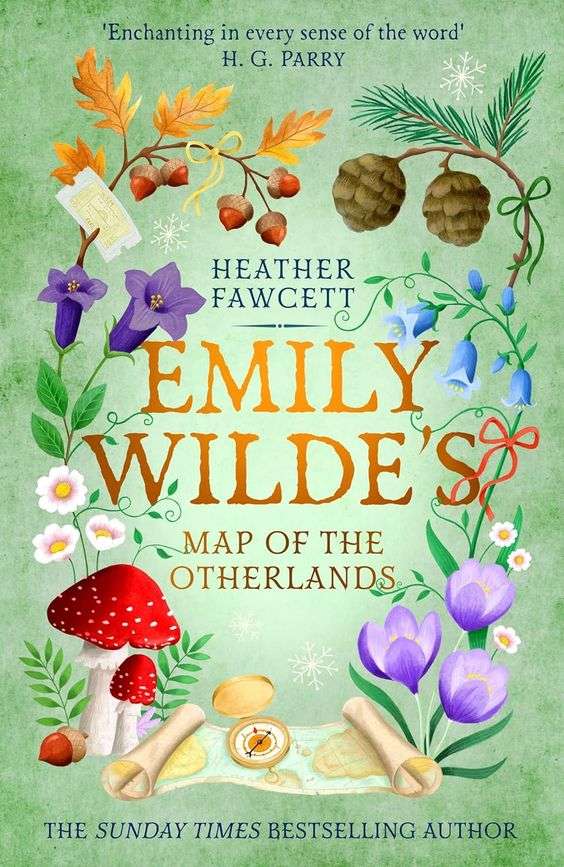We’ve had some issues with emails going to hotmail, outlook and related addresses. If you’ve recently made a purchase using one of these and not received a confirmation email, please get in contact with us – use an alterative email address for contact or purchase if you can.

For all things fantasy, horror, and speculative fiction
Announcement:

Emily Wilde
EMILY WILDE’S MAP OF THE OTHERLANDS by Heather Fawcett.
Orbit Books. h/b. £20.
Reviewed by Elloise Hopkins.

Professor Emily Wilde, always a scholar first, is preoccupied with her latest project – to create a map of the faerie worlds she knows of and record their known entrances and secrets. It will be a follow-up to her now-published encyclopaedia, which earned her tenure at Cambridge University, although, as the head of the department would remind Emily, her position was only secure so long as she remained credible. She and Wendell both.
Unfortunately, Wendell appears to be nursing a dreadful hangover (it was his birthday, after all) and is apparently giving a lecture, which Emily knows full well he will not have prepared for. On top of that, she had promised to help Wendell find his door, she still has the fairy king’s proposal hanging over her head (marriages between fae and mortals rarely end well, as she knows), and now a visit from a strange, ribbon-adorned man threatens to disrupt her activities.
Once again, Emily finds herself drawn deeper than anticipated into the mysteries of the faerie lands when her next scholarly adventure begins. She hopes – in the name of research – to find a lost professor, and so with Wendell, her niece and a faerie foot in tow, Emily and her companions must evade faerie tricks and assassins and find their way in and out of the winterlands.
Emily Wilde’s Map of the Otherlands is a fantastical follow-up to Fawcett’s first in the series. From the very start, we are immediately re-immersed into Emily’s adventures, and this is one of those rare second-in-a-series books where the reader feels as though no time has passed since the first book was read, even though, in reality, almost a year has gone by. There is tension, wit and danger aplenty, and a delightful array of antagonistic creatures that breathe life into every page.
The narrative is still relayed through Emily’s journal entries, which, as before, are written in a narrative voice so well embedded in this world that we can imagine it brought to life before our eyes. The exchanges and continuing relationship developing between Emily – resourceful and single-mindedly dedicated to her research – and Wendell – wallowing in self-pity and always wanting the finer things in life at the least effort – is full of hilarious sideswipes, pithy remarks and criticism, which give a wonderfully realistic feel to the wider narrative and round off the story with the perfect balance of emotional connection and action.